HUNGARIAN FLAVOURS LTD. - your producer of high quality soft drinks and walnut products
Hungary
Manufacturer/ Producer

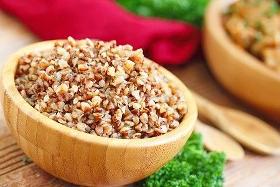
HUNGARIAN FLAVOURS LTD.
Hungary
Buckwheat is a gluten-free pseudocereal (fake grain) belonging to the Polygonaceae family. Thanks to its high nutritional value, it is known for its many beneficial effects on health. It contains valuable proteins, fatty acids, dietary fiber, minerals and other health-supporting components such as phenols and sterols. Due to its components, it is considered a functional food. Any food that not only has a nutritional function, but also helps the human body to function more efficiently and healthily with one or more additional properties can be called functional. Some research proves that regular consumption of buckwheat reduces the appearance of inflammation. It optimizes the cholesterol level, reduces the level of LDL, also known as "bad" cholesterol, while increasing the "good" HDL cholesterol in the blood, thus, it plays an important role in the prevention of heart diseases.
Request for a quote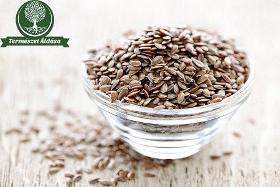
HUNGARIAN FLAVOURS LTD.
Hungary
Flaxseed has been known and used for centuries in various forms of folk medicine. It is considered beneficial for almost the entire body. It is used to stimulate brain function, to treat respiratory diseases (such as bronchitis), skin complaints, joint diseases, and many problems of the digestive system. It is considered a natural anti-inflammatory, it is recommended for the regeneration of mucous membranes, intestinal diseases, constipation, and the tea made from it relieves menstrual cramps. Flaxseed is rich in many minerals and vitamins A, B, C, D and E. It contains 35% fat, a significant part of which, 72%, is essential. An excellent source of omega-6 fatty acids. In addition, it contains an abundance of essential omega-3 fatty acids, which are essential for our body, but the body cannot produce them, so we have to take them in through nutrition.
Request for a quote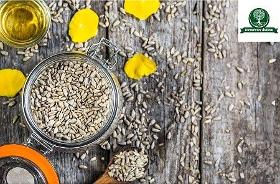
HUNGARIAN FLAVOURS LTD.
Hungary
The sunflower spread from North America to Europe during the great geographical discoveries. It became established as an ornamental plant in the gardens of gentlemen, then moved to peasant gardens, and later to fields. Even today, its seed is one of our favorite snacks, and its oil is an important element of healthy nutrition. Its moderate consumption has a positive effect on our body as a whole thanks to its valuable ingredients. According to research, it contributes to the prevention of many diseases. It is rich in magnesium, a mineral that plays an important role in the metabolism of proteins, fats and carbohydrates, in normalizing circulation, in reducing cholesterol levels. The phosphorus contained in it contributes to the proper functioning of the nervous system, and plays an important role in the development and strengthening of bones and teeth.
Request for a quote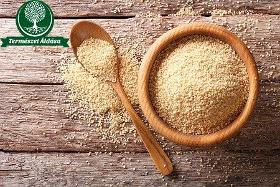
HUNGARIAN FLAVOURS LTD.
Hungary
Couscous is of Berber origin, the word means "well rolled", which refers to its traditional preparation. It was originally made by hand from durum wheat semolina: the steamed semolina was rolled by hand into small balls, then rolled in flour and spread out to dry to keep it crisp. It has been a national dish in North Africa for a thousand years, and its consumption is widespread even in Arab gastronomy and in the Middle East, but nowadays it is increasingly popular in many areas of the world, including in our country, thanks to its healthy nature and simple use.The most significant mineral in couscous is selenium, which mediates a wide range of biological effects.
Request for a quote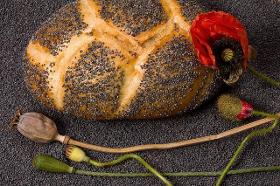
HUNGARIAN FLAVOURS LTD.
Hungary
Poppy is originally a plant native to the Middle East used as a spice, and is an extremely rich source of calcium and carbohydrates. The Egyptians, Babylonians and Assyrians were already involved in poppy cultivation, and the Romans used a drink consisting of a combination of honey, poppy and wine to increase the performance of athletes during the first Olympic Games. In our article, we take a look at the possible fields of application of the poppy today and give you ideas for some home practices. As it is rich in dietary fiber, electrolytes, minerals and vitamins, the poppy can have a beneficial effect on our entire circulation and body. Thanks to its anti-inflammatory and antioxidant properties, its regular use prevents premature cell damage and improves the body's immunity.
Request for a quote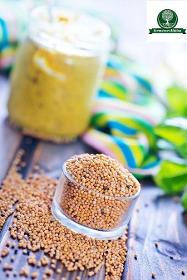
HUNGARIAN FLAVOURS LTD.
Hungary
Mustard is a herb belonging to the cruciferous plant family and one of the oldest and most commonly known food seasonings. Due to its characteristic aroma and healing effect, there are records of its use as a spice and as a medicinal plant from before our era. In addition to the yellow (or white) mustard seed, there are also known oriental (or Indian) and black varieties. Yellow mustard seed is used especially in the western states against many diseases. It is used against arteriosclerosis, high blood pressure, gout, metabolic disorders, gall and liver disorders, digestive complaints, constipation, flatulence and skin rashes. It stimulates blood circulation, has a cleansing effect on the vascular system, reduces blood clotting and blood clot formation. The consumption of mustard seeds is also attributed to a general detoxification effect, both internally and externally.
Request for a quote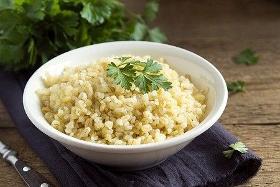
HUNGARIAN FLAVOURS LTD.
Hungary
Bulgur is actually broken wheat. Many people know it as Turkish rice. It is mostly preferred by Middle Eastern and Turkish cuisine, but nowadays it is becoming more and more widespread and is consumed in many areas of the world. The still unripe or husked wheat grains are steamed, dried, and then coarsely crushed. It is made from durum wheat, which contains straight-chain amylose starch. Enzymes break it down into dextrose more slowly, therefore raising blood sugar more slowly, thus reducing the glycemic index. Since it is steamed in advance, the cooking time is shorter than e.g. of the better-known semolina. Research has shown that regular consumption can contribute to the prevention of tumors, diabetes, obesity, cardiovascular and digestive system diseases.
Request for a quote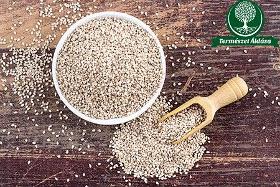
HUNGARIAN FLAVOURS LTD.
Hungary
Sesame was cultivated five thousand years ago in ancient India, from where it spread worldwide through Japan and China. In ancient times, it was known and held in high esteem by almost everyone, its healing and strengthening effects were attributed to it. Thanks to its composition of tiny seeds, it is an extremely valuable food, sesame seeds are also considered the king of seeds. Due to its antioxidant properties, vitamin E protects against the harmful effects of free radicals, protects the cell membrane, and delays the aging process. The vitamin B1 contained in it is necessary for the functioning of vital enzymes and plays an important role in carbohydrate metabolism. Sesame seeds are also rich in vitamins A and B2, phosphoric acid and lecithin. The latter component is a natural, fat-like substance, which is an important building block of the cell wall and plays an important role in the proper functioning of the nervous system, liver and heart.
Request for a quote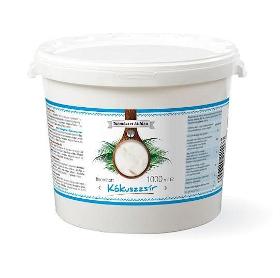
HUNGARIAN FLAVOURS LTD.
Hungary
Throughout history, coconuts have been a staple food for indigenous people. The fruit of the coconut palm (Cocos nucifera) develops on the tree in clusters containing five to twelve fruits. It comes from the islands of the Indian Ocean or the archipelago between Asia and Australia. The fat obtained from its flesh, coconut oil, contains triglycerides, tocopherols, phospholipids and fatty acids, which have excellent antiviral (antiviral) and antibacterial (antibacterial) effects. 83% of its fatty acid composition is saturated fatty acid, 7% monounsaturated, 2% polyunsaturated fatty acid. 50% of the fatty acids in coconut are lauric acid, which has powerful anti-microbial, antiviral, antibacterial, anti-protozoal and fungicidal effects. Its medium-chain fatty acids (MCT) can be absorbed directly, without transformation.
Request for a quote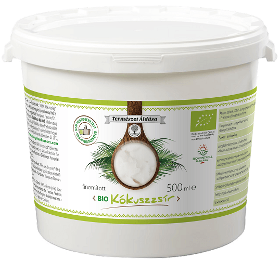
HUNGARIAN FLAVOURS LTD.
Hungary
Coconut oil has been consumed by people for thousands of years in the tropics, where palm trees grow.Nowadays, it is increasingly becoming the center of attention in Europe, due to its many beneficial properties. What are these?Thanks to the gentle production method, it does not contain catalyst and solvent residues or decomposition products that are harmful to health. Coconut oil is produced from the dried seeds of the coconut usually without the use of chemicals, by mechanical means, by pressing. The oil produced in this way is "virgin" coconut oil, which still has the smell and taste of fresh coconut. Virgin oil is typically purified by a physical process (RBD), the resulting oil is "refined coconut oil" (name in the food and pharmacopoeia). Refined coconut oil is odorless and has a neutral taste.
Request for a quoteManufacturer/ Producer
Budapest 1173 Összekötő utca 1 Mesterek Háza
1173 Budapest - Hungary